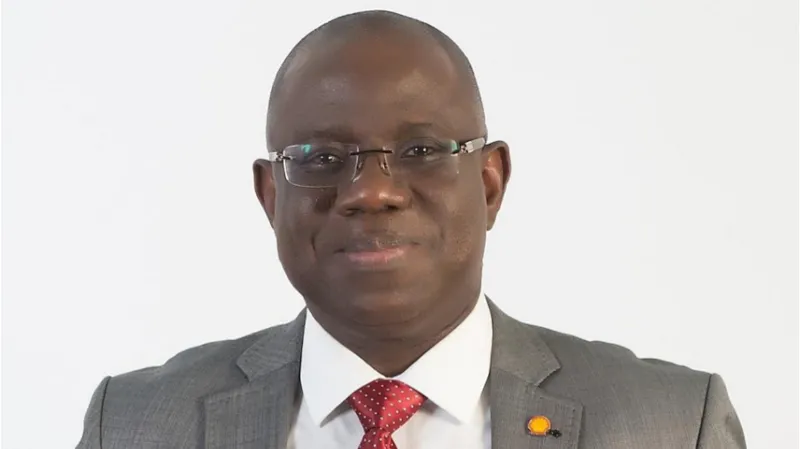In an ambitious move aimed at revitalizing Nigeria’s troubled oil industry, the Nigerian government has appointed a former Shell executive, Osagie Okunbor, to oversee efforts to clean up the oil sector mired in corruption and environmental degradation. This decision reflects a broader commitment to reform and accountability within an industry that has long been the backbone of Nigeria’s economy but has also faced intense scrutiny over its practices and environmental impact.
Context: The Oil Industry Landscape in Nigeria
Nigeria, Africa’s largest oil producer, depends heavily on the oil and gas sector, contributing about 90% of the country’s foreign exchange earnings and approximately 70% of government revenue. However, the sector has been plagued by a history of mismanagement, corruption, and non-compliance with environmental regulations. Oil spills, gas flaring, and pollution have severely impacted local communities, particularly in the Niger Delta region, which is home to a significant portion of the country’s oil resources.
The need for urgent reform in this sector has never been greater. According to the Nigerian Extractive Industries Transparency Initiative (NEITI), the oil sector has lost over $50 billion due to mismanagement and corruption over the past two decades. While Nigeria boasts the largest oil reserves in Africa, the country has struggled to effectively leverage these resources for socio-economic development.
A Suitable Choice: Osagie Okunbor’s Background
Osagie Okunbor, who has returned to Nigeria after a significant career at Shell, is seen as a fitting choice for this critical role. He served as the Managing Director of Shell Nigeria and as the Country Chairman of Shell Companies in Nigeria, managing complex operations in one of the most challenging business environments globally. His tenure at Shell was marked by a focus on operational integrity, partnerships with local communities, and an emphasis on sustainable practices.
Okunbor’s extensive experience in the oil industry, coupled with his understanding of Nigeria’s intricate political and social landscape, positions him uniquely to tackle the enormity of the task ahead. His appointment is a signal of intent from the Nigerian government to bring in expertise from the private sector to address long-standing issues.
Key Challenges Ahead
Okunbor faces numerous challenges as he begins this monumental task. First on the agenda is addressing the rampant corruption that has permeated the industry. Initiatives such as the Nigerian Oil and Gas Industry Content Development Act and various anti-corruption efforts need to be enforced rigorously to eliminate the malpractices that have caused deep-seated financial drain.
Secondly, Okunbor must confront the environmental crises that have plagued the Niger Delta. Oil spills and gas flaring contribute to significant ecological destruction, affecting the health and livelihood of millions. He will need to work closely with environmental agencies, local communities, and international organizations to implement effective remediation strategies while ensuring compliance with global environmental standards.
Additionally, the oil sector’s infrastructural challenges, such as outdated pipelines and inconsistent regulatory frameworks, require immediate attention. Investment in upgrading infrastructure and enhancing operational efficiency is essential for both economic growth and environmental sustainability.
Building Coalitions and Trust
Establishing trust among stakeholders is crucial for Okunbor’s success. This includes fostering relationships with local communities, government agencies, and international partners. Transparency and accountability will be central to rebuilding faith in the sector. Okunbor’s previous experience with community engagement will be vital as he navigates the complexities of local grievances and aspirations.
Moreover, Okunbor must champion a more transparent and sustainable approach to oil extraction that aligns with global climate goals. Engaging with renewable energy initiatives and exploring alternative energy sources can position Nigeria favorably in a rapidly changing global energy landscape.
Conclusion: A Hopeful Outlook
The appointment of Osagie Okunbor marks a pivotal moment in Nigeria’s oil sector, symbolizing a proactive approach to long-overdue reforms. While the challenges ahead are daunting, Okunbor’s expertise and leadership could be instrumental in steering Nigeria toward a more sustainable and ethically responsible oil industry. A reformed oil sector not only promises economic benefits but also potential restoration of trust and hope among Nigeria’s citizens who have long dreamed of a better future. As the world watches, the outcome of this endeavor could serve as a blueprint for similar initiatives in other resource-rich countries grappling with systemic issues in their extractive industries.
Email Us on editorial@nnafrica.com













